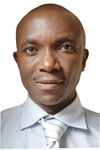Despite the turbulences that characterized Africa’s political and economic landscape, this year, Rwanda’s economy has emerged much stronger. One way of looking at the country’s economic resilience in the face of such difficult times, is to closely compare the predictions by various authoritative reports on Rwanda, that were conducted at the beginning of the year, and the performance indicators by other agencies trickling in as the year ends.


Despite the turbulences that characterized Africa’s political and economic landscape, this year, Rwanda’s economy has emerged much stronger. One way of looking at the country’s economic resilience in the face of such difficult times, is to closely compare the predictions by various authoritative reports on Rwanda, that were conducted at the beginning of the year, and the performance indicators by other agencies trickling in as the year ends.
African Development Bank (AfDB), the continent’s foremost development agency, predicted that Rwanda was going to be some sort of an island of economic stability in a continent that was going to experience what it termed "serious headwinds” – meaning very complex economic turbulences.
AfDB pointed out that a good number of African economies, including the ones in East Africa, will, during the course of the year 2011, experience economic and political instability, partly caused by high food and fuel prices.
For Rwanda, AfDB painted a rather rosy picture. But, the doubting Thomasses went on to say that such reports were just public relations gimmicks for a country that is not likely to fair any better than the rest. AfDB actually went on to reinforce its assumptions by saying that such a situation is very likely to come to pass as Rwanda’s economy made a quick rebound from the economic shocks and decline it experienced in 2009.
The predictions by such a respected development agency have now come to pass. Part of the current African political history is the onset of what has come to be known as the Arab Spring, a situation that unleashed the kind of political and economic instability that Africa has not seen in the last 40 years. For instance, by close of the year, some of Africa’s long-standing dictators were largely confined to dustbins of African history.
Further still, various complex economic challenges dogged Rwanda’s immediate neighbors. Fuel and food crises, as predicted by AfDB report, dogged East African economies, but largely and miraculously spared Rwanda, a country that has its own sets of unique challenges.
For starters, one would have expected that the fuel prices that sky-rocketed East African Community (EAC) cities like Nairobi and Kampala, that led to various forms of equally negative trickledown effects for both Kenya’s and Uganda’s economy, would not spare Kigali. The story went on that if Kigali would not be spared, such an ugly prospect of fuel prices spinning out of control, then the larger economy of Rwanda would go down on its knees.
Actually, it was highly expected in some circles, that since Rwanda heavily relies on Kenya and Uganda for its various economic lifelines such as fuel, the spiraling inflation from both countries would naturally be imported into Rwanda with devastating consequences. That never happened.
By close of the year, Rwanda’s inflation remained under single digit status. Rwanda’s economic growth, this year, is very likely to surpass the averages set for Sub-Saharan African countries. Investments, a key tenet of the country’s transformation agenda is back to pre-crisis levels, a recovery prospect that is happening within a relatively short span, to the surprise of both Rwanda’s friends and foes.
Such reports trickling in as the year comes to a close suggest that Rwanda’s economy is now firmly on a path of growth. Indeed the year 2011 was a good one for the Rwandan people.
The author is an editor with The New Times
Ojiwah@newtimes.co.rw


